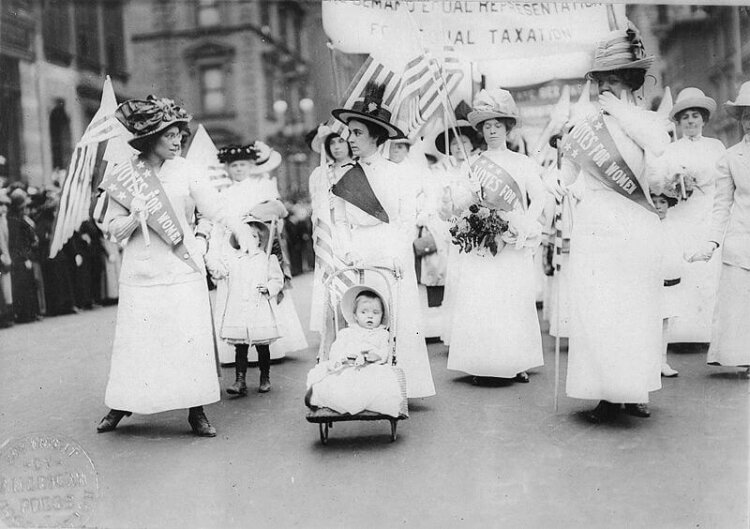
It has come to my attention recently that there are a lot of different definitions of feminism. The reason it has come to my attention is there seems to be a trend, mostly among young women and not “old ladies” like me, to label as “feminist” any acts that are favorable to the individuals performing them. In addition, with Hillary Clinton as a Democratic candidate for President, many voices are bringing up feminism as a factor in voting or not voting for a woman candidate in this election.
Today, there are women who perform in pornography and are paid to have sex on camera and call it a feminist act, because they describe it as empowering. Certain actresses and models have also labeled posing nude for photo shoots as empowering and feminist. There are even websites that consist of women posing nude in the name of empowerment and feminism.
I suppose we could debate forever and a day what feminism is and what it isn’t. Instead, I would like to define what I think of when I describe myself as a feminist. First, a little history.
The first-wave of feminism is defined as the period during the 19th and early 20th century, when the main goal of women’s rights activists was to acquire a little thing called “the right to vote.” In those days, women’s roles were generally restricted to being someone’s wife and extension of their property, and women did not have a tremendous voice regarding what they could and couldn’t do or where they could go. First-wave feminists like Susan B. Anthony, Lucretia Coffin Mott, Sojourner Truth, and Ida B. Wells abided by a pretty strict set of rules: getting the vote for women was their crowning achievement.
Second-wave feminism began in the 1960’s and lasted through the early 1980’s. The crowning achievement of second-wave feminism was the Equal Rights Amendment and passing Roe v. Wade, the right of women to have abortions. It is important to understand that allowing women to be the deciders of what happens to their bodies does not equate with encouraging abortion or approving it if you don’t; it simply means that it is a human right of women to decide what to do with their bodies. Second-wave feminism explicitly sought to free all people – men and women – of the bonds of race, gender, and class. The idea was that women have special human sensitivities that allow them to see into certain problems and seek solutions to them.
The main points of focus for the movement were to obtain equal rights for equal pay, to have the right to be in charge of your body, and to break down the barriers of race, class, and gender for men and women.
Women who I think of when I think of second-wave feminism are Gloria Steinem (who founded Ms. Magazine), Bella Abzug, Betty Friedan and Helen Gurley Brown. Hillary Clinton has never publicly identified as a second-wave feminist, to my knowledge, but many second-wave feminists seek her out as a modern leader of a movement powered by women.
Here are some examples of issues that are universally agreed on by academically- and intellectually-minded second-wave feminists like me:
- Women have the right to vote
- Women have the right to decide what to do with their bodies when it comes to access to birth control and abortion
- Women have the right to not be used as sexual objects in a workplace
- Women have the right to not be fired because they get pregnant
- Women have the right to receive equal pay for equal work done
Examples of issues that second-wave feminists don’t agree on and don’t have to:
- Whether or not to get married
- Whether being heterosexual is in conflict with feminism (some feminists believe that heterosexuality is an affront to progress for women)
- Whether or not to shave body hair or wear makeup or skirts
- Whether or not to embrace traditional things such as domestic arts (cooking, raising a family)
Third-wave feminism throws a wrench into traditional feminist thought because it adds emphasis to:
- Using sexuality as a tool of empowerment
- De-emphasizing the political motivations of second-wave feminism
Third-wave feminism leaves second-wave feminists in a bit of a pickle. We get accused of being fuddy-duddies, of not understanding the changing times, or being too sensitive and too serious. I suppose we are sensitive and I suppose we are serious. We are sensitive to how women are portrayed in the media and we are sensitive to how young women perceive their role in society and in the media. We are deathly serious about threats to women’s rights which continue to this day. We tend to want to emphasize the things that need fixing in this world rather than finding ways to use our sexuality to define feminism. In fact, second-wave feminists might even get all sensitive and serious about how many women use men’s perceptions of what our sexuality ought to look like without even knowing it; that we can’t even separate what we think is attractive from what we have been told by the patriarchy that men find attractive.
It’s complicated.
I think the important thing to realize is that there is a tremendous amount of variability among feminists. We don’t have to all agree on what feminism is, but it certainly would behoove all women who use the word feminist or even the word “empowering” when describing things that they do in the name of their “woman-ness” to also learn about the prominent and critical issues still facing women all over the world.
When women are no longer sold into sex slavery, when girls are no longer encouraged or coerced into lifting their shirts for cameras at fraternity parties, when women are no longer raped (and sometimes murdered) in the name of honor all over the world, and when they are no longer raped – often after having too much to drink – by men who think being drunk is the same thing as giving consent, and when women are paid equal pay for equal work – then, and only then, will I be interested in a feminism that focuses on posing naked for men as an act of empowerment. Heck, when that day comes, I might even flash my cleavage TO the camera instead of turning away and only doing it to annoy Piers Morgan.




 Read More From Mayim
Read More From Mayim
Grok Nation Comment Policy
We welcome thoughtful, grokky comments—keep your negativity and spam to yourself. Please read our Comment Policy before commenting.